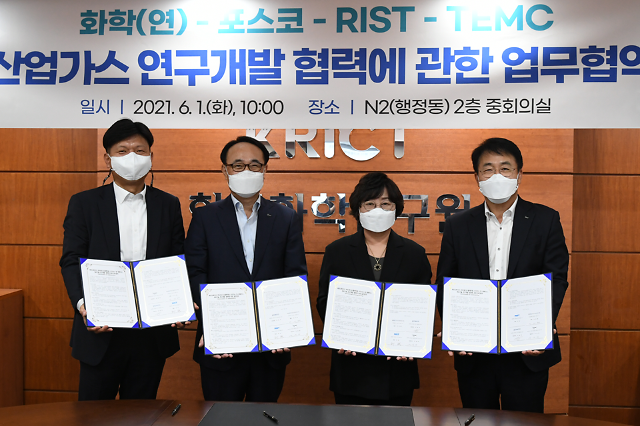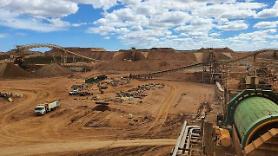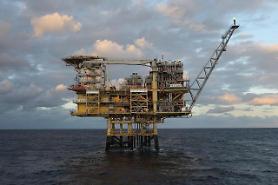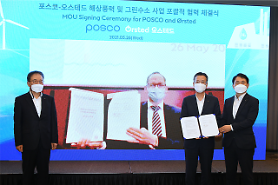
[Courtesy of POSCO]
SEOUL -- POSCO formed a consortium involving research bodies to cooperate in the development of etching gas and refrigerant gas with low global warming potential as part of efforts to reduce South Korea's heavy dependence on imported industrial gases and cope with enhanced environmental regulations worldwide.
Global warming potential (GWP) is the heat absorbed by any greenhouse gas in the atmosphere and provides a common scale for measuring the climate effects of different gases. The four-member consortium also groups the state-run Korea Research Institute of Chemical Technology (KRICT), the Research Institute of Industrial Science & Technology (RIST) and TEMC, a specialty gas producer.
Etching gas used for the production of semiconductors and displays is in the category of high-GWP gases that trap substantially more heat than carbon dioxide. There will be regulations on the use of etching gas, which is heavily burdened with carbon emission rights. Refrigerant gas products containing ingredients that are at high risk of ozone depletion will be banned from 2030. As a result, the demand for eco-friendly gases is growing.
The state-run Korea Research Institute of Chemical Technology (KRICT) will develop original technology. "Based on the research capabilities of (KRICT) and cooperation with POSCO, RIST and TEMC, we hope to accelerate the reduction of greenhouse gases," KRICT president Yi Mi-hye said in a statement on June 1.
RIST will scale development techniques up. POSCO and TEMC are in charge of commercialization in 2025. "Through this cooperation, we will expand our business scope to the eco-friendly gas market and create new business opportunities," said POSCO's industrial gas division head Yoo Byeong-og.
The most common gas used in etching is fluorine-based or chlorine-based. In June 2020, SK Materials embarked on the commercial production of high-purity hydrogen fluoride, which is used to wash away foreign substances in the process of piling up silicon wafers. Since Japan imposed trade restrictions in July 2019, South Korean firms have localized etching gas and other key industrial materials.
Copyright ⓒ Aju Press All rights reserved.



